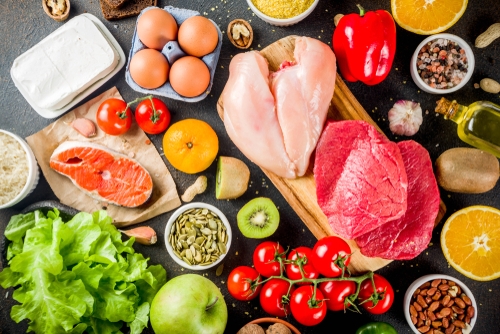Feeling sick when running is known as Gastrointestinal (GI) upset or “Runners Gut”. It is one of the biggest reasons runners don’t finish races. After all that training, most runners would prefer to roll their ankle than be stopped in their tracks by an upset stomach.
Imagine… You are 60 kilometres into a 100km ultramarathon. The wind is blowing through your mandatory trail runner beard. You are feeling strong and powerful. The background soundtrack in your head is Queen’s “Don’t stop me now”. All is well in trail runner paradise.
Wait… what’s this? A deep grumbling/gurgling is heard from the depths of your stomach… uh oh…
The symptoms that present with exercise induced gastrointestinal upset are similar to those of Irritable Bowel Syndrome or the more controversial “Leaky Gut”. There may be associations with this conditions and runners who experience GI upset when running, however limited research has been conducted on these associations. Symptoms often include nausea, stomach cramping, vomiting and diarrhoea.
In this article we outline how best to avoid exercise induced gut problems when running.
Hydration and Gastrointestinal Upset

Appropriate fluid intake is not only important to avoid dehydration, it can actually help prevent/reduce the severity of GI upset. Ensure you begin a race in a hydrated state (not over-hydrated), and that you maintain this throughout the race. The best way to monitor hydration is to drink to thirst (Read more of hydration here).
Nutritional Strategies for Race Day
- Avoid high fibre foods 24 hours prior to race
- E.G excessive amounts of fruits, vegetables or nuts.
- Avoid high protein foods 12 hours prior to race.
- Limit fluid intake directly before the race.
- Eat breakfast at least 2 hours before the race.
Nutrition During Ultra-Marathons
Nutritional strategies vary significantly between runners. Some will eat almost nothing over the race, whilst others will munch down on soup and baked potatoes.
Research has found that carbohydrate ingestion can actually help reduce GI upset during a race, by increasing and maintaining blood flow to the gut and surrounding tissues. A steady source of up to 60g/hr of carbohydrate is recommended if runners want to prevent GI upset and maximise performance. Recent literature reports the gut can absorb up to 90g/h of carbohydrate. However, this high level of carbohydrate intake can increase GI upset as fructose must be consumed, which seems to be less tolerated by most runners.
Gut Training for Ultra-Marathons
Gut training is a popular topic of conversation for ultra runners. However, little research has been completed on this topic. From what research there is, gut training seems to be effective in some runners, depending on symptom history, gender and level of fitness.

If your a runner who consistently experiences gut issues when running, trialling gut training is worth it. Two methods can be used to train the gut, depending on the race and your preferred food choice.
- Eating a carbohydrate rich meal 1 hour prior to a moderate intensity training run. This is best for longer races or for runners who wish to eat solid food during a race. It is best to trial this multiple times prior to race day.
- Eating 60-90h/hr of 2:1 ratio of glucose to fructose carbohydrate mix during a moderate intensity training run. This strategy works best for those that have gut issues when eating carbohydrate gels/liquids. Again, trial this multiple times prior to race day.
Read more about running nutrition on race day here.
Probiotics, Gluten Free and FODMAP for Gastrointestinal Upset
Dietary interventions for runners who experience GI upset are numerous. However, some of the most common are probiotic use, gluten free diets and FODMAP diets.
- Probiotics: Research has found no conclusive evidence that regular probiotic intake improves GI upset in runners.
- Gluten Free Diet: Research has found that for non-coeliac runners, a gluten free diet has no effect of GI upset. Although, some runners swear they have improvements in GI issues on a gluten free diet, it is thought to be due to low FODMAP, rather than gluten content.

- FODMAP Diet: The FODMAP diet is often used for individuals with Irritable Bowel Syndrome with great results. FODMAPs are sugars that are poorly digested in the small intestine. As IBS symptoms are similar to exercise associate GI issues, FODMAP diets may have merit for runners. Early evidence suggest a short term FODMAP diets (at least 7 days prior to race day) can improve exercise associate GI issues. See a qualified sports dietician if you are interested in trying the FODMAP diet. Check out Monash Universities FODMAP diet.
If you have ongoing exercise induced GI upset, we recommend consulting your local sports dietician for advice.
